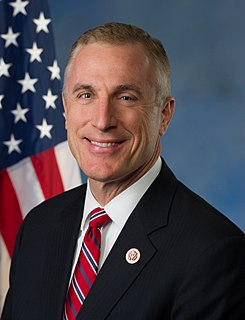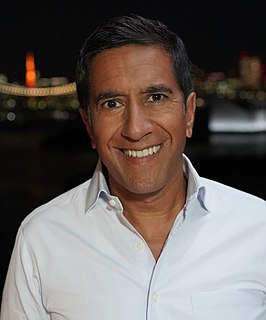A Quote by Kenneth Arrow
In 1963 and later papers, I pointed out that the special market characteristics of medical care and medical insurance could be explained by reference to differences in information among the parties involved.
Related Quotes
Now, it is sometimes said that medical care is too important to be left to the market, and that it is immoral to profit from the illnesses of others. I say medical care is too important to be left to the failed central plans of the political class. And as for profiting from providing medical care, we can never be reminded enough that in a free society, a profit is a signal that valuable services are being rendered to people on a voluntary basis.
It is taken for granted that workers should receive their pay partly in kind, in the form of medical care provided by the employer. How come? Why single out medical care? Surely food is no less essential to life than medical care. Why is it not at least as logical for workers to be required to buy their food at the company store as to be required to buy their medical care at the company store?
In a wristwatch, imagine the battery is in the strap and there's a medical sensor in there connected to the internet. If someone is monitoring that, they could phone up if the user has forgotten to take some medication. This could save hundreds of dollars in medical fees later. What's missing? It's a stable battery.
Electronic medical records are, in a lot of ways, I think the aspect of technology that is going to revolutionize the way we deliver care. And it's not just that we will be able to collect information, it's that everyone involved in the healthcare enterprise will be able to use that information more effectively.
As a physician and a U.S. senator, I have warned since the very beginning about many troubling aspects of Mr. Obama's unprecedented health-insurance mandate. Not only does he believe he can order you to buy insurance, the president also incorrectly equates health insurance coverage with medical care.
[Marijuana] doesn't have a high potential for abuse, and there are very legitimate medical applications. In fact, sometimes marijuana is the only thing that works... [I]t is irresponsible not to provide the best care we can as a medical community, care that could involve marijuana. We have been terribly and systematically misled for nearly 70 years in the United States, and I apologize for my own role in that.
...The asbestos industry...has for decades successfully suppressed and manipulated information on the carcinogenicity and other hazards of asbestos. Involved in this conspiracy network were senior industry executives, their medical staff, attorneys, insurance companies, trade associations, scientific consultants, and commercial labs.
One of the biggest reasons for higher medical costs is that somebody else is paying those costs, whether an insurance company or the government. What is the politicians' answer? To have more costs paid by insurance companies and the government. ... [H]aving someone else pay for medical care virtually guarantees that a lot more of it will be used. Nothing would lower costs more than having each patient pay those costs. And nothing is less likely to happen.


































